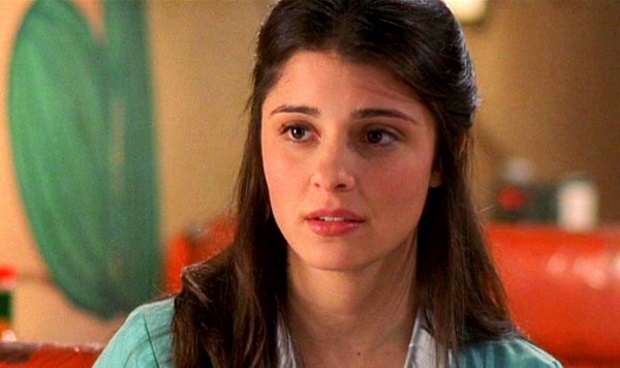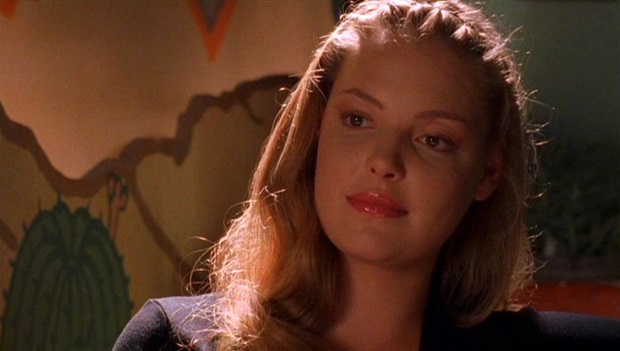Celebrating the Women of Roswell
With a Roswell reboot in development at The CW, Annie celebrates how the original show's leading ladies redefined the concept of strength...
This article comes from Den of Geek UK.
Roswell was a science-fiction TV drama that aired on The WB and UPN from October 1999 to May 2002. There has been some buzz around the show as a reboot by the CW looms and it has definitely provoked some thought which has led to one conclusion – for its time, the show’s female characters were pretty great.
Okay, so it was the late 1990s. Women weren’t exactly being burned at the stake or being thrown into an asylum for menstruating; but we have come a long way in the 20-ish years since Roswell first aired and let’s face it, there are still plenty of female characters written today who could use a lot more of what the Roswell women had going on.
Enter Jason Katims, the showrunner of Roswell. Inspired by Melanie Metz’s young adult series of novels, Roswell High, Roswell has an intrinsic diversity of personality among its female protagonists.
Along with a lack of variety in female personalities on screen, there’s a well-discussed problem with a homogenous approach to ‘strength’ when it comes to women characters. Some writers seem to struggle with there being more than one type of ‘strong’ i.e. a character doesn’t have to do stereotypically ‘male’ things and beat up the world (and their mothers) to be seen as strong. Strength comes in so many different flavors and Roswell lets us taste them all.
Let’s start with the female lead – Liz Parker. She academically excels and dreams of being a molecular biologist who studied at Harvard University. Science has stereotypically been a male-dominated domain, with little spotlight being shone on female scientists. According to a study undertaken by Elsevier, only 30% of scientific published works in the 1990s were authored by women. So, in a time where less than a third of papers for peer review were written by women, having a female lead being a scientist was a pretty big deal.
It’s also worth noting that the scientific field of study that Liz chose was outside of the areas stereotypically defined as suitable for women, such as nursing or clinical psychology.

But science whizz Liz (try saying that ten times fast) wasn’t just defined by her love of science – she’s strong and determined, level headed and logical, yet kind and caring. She’s the woman with a plan!
Liz Parker took ‘femininity’ and turned it on its head. In society, girls, boys and everyone in between are told constantly “don’t be such a girl” when they so much as think about welling up. There’s somewhat of an ‘association train’ here – emotions are associated with weakness with people being scolded for it > emotions are also associated with women > therefore, women are associated with weakness
It doesn’t take a genius to figure out that this is a harmful societal dynamic. Roswell writers were unafraid of showing Liz crying on screen. And not in a total ‘damsel in distress’ kinda vibe either. Liz is undoubtedly strong and so with each tear, a little girl got the message: emotions do not make you weak.
No character would be complete without some drawbacks or weaknesses. It’s what creates the connection between character and audience. It also grounds the show in reality, which is important for sci-fi shows like Roswell. The Mary Sue trope is tiresome and essentially leads to those watching to become apathetic and alienated (had to sneak that word in at least once in an article about Roswell!) towards the whole shebang.
Some argue that Liz falls into this Mary Sue category, even comparing her to the much more dull Bella Swan in Twilight. Liz is more complex than Bella. Liz longs for discovery and deep down seems to crave adventure. But this sometimes gets the better of her and her attitude towards her relationship with Max becomes almost obsessive and unhealthy.
What I would say though, is that although she is helplessly in love with Max (probably to the point of toxicity), she never seems to rely on him. Liz is always the one who has the plan, has thought about the logistics and is ready to go. Ultimately, Liz definitely grows and develops as the series pans out over its three seasons.

Maria Deluca, Liz’s best friend, is almost her polar-opposite. While Maria is not notable for academic success, as Liz is, she’s more of a creative. She’s shown to be a talented musician and having an interest in photography. Deluca is a fiercely loyal and passionate friend, seeming to ‘give her all’ to people. Maria is somewhat eccentric, but Liz grounds her and they complement each other’s differences.
While Maria struggles with the aliens’ secret, she does ultimately keep them under wraps.
Again, Deluca has her weaknesses: her passion can often evolve into jealousy and she can be somewhat demanding. People may argue that this not the message we should be portraying to impressionable girls, but this behavior is never celebrated. These characters are three-dimensional, and surely it is more harmful to portray a character with no flaws? Roswell’s characters teach us that people are human. They make mistakes and yes, they majorly mess stuff up.
Moving on to Isabel Evans, Max’s sister and one of the original alien trio. Isabel is your typical ‘popular girl’ at school: flawlessly beautiful, fierce, outgoing, well-loved but also a little catty. She hides behind her cold exterior, but deep down is caring and loyal, doing anything to protect those she loves.

Isabel is perhaps the most ‘adjusted’ of her, Max and Michael, seamlessly fitting into the human world. If Maria is Liz’s polar opposite, then Isabel is Liz’s universal opposite. I cannot sing the Roswell writers’ praises highly enough for this. Diversity in female characters’ personalities – hallelujah!
Now, Tess Harding, what can we say about Tess? She is devious and cunning, using her female ‘sex appeal’ to her advantage. She is known to be the most powerful of the aliens, having used her powers from the beginning and being trained by Nasedo. Tess also has the unique power of ‘mindwarping’ – creating illusions and making people see things which aren’t real. This certainly saves the gang’s skin a few times throughout the series.
Tess encapsulates some traditional views of femininity – she is conventionally attractive and eventually gives birth to a child, Zan. But, there is something about her that also reflects what femininity should be about. She’s physically powerful and definitely ‘knows what she’s about’. Independent and fierce, Tess is certainly not one to be messed with.

Roswell’s women can’t be called ‘perfectly written’ by any stretch of the word. While they are indeed diverse in personality, they are certainly not diverse in minority representation, with all the leading ladies being white, heterosexual and cisgender. Roswell also perhaps places too much emphasis on the girls’ relationships with boys and not themselves and their merits.
Roswell was a show that reinforced the fact that the concept of ‘feminine’ has no set definition, but is fluid and changes from person to person. Much like water, it is moveable and malleable. If you try to grasp the definition, it will run through your fingers, but it will fit into any shaped vase. For that, it deserves to be celebrated.
Fingers crossed that The CW’s upcoming reboot builds on the foundation of the original, and brings us an even greater range of recognisable women characters shaped by today’s more progressive social context.